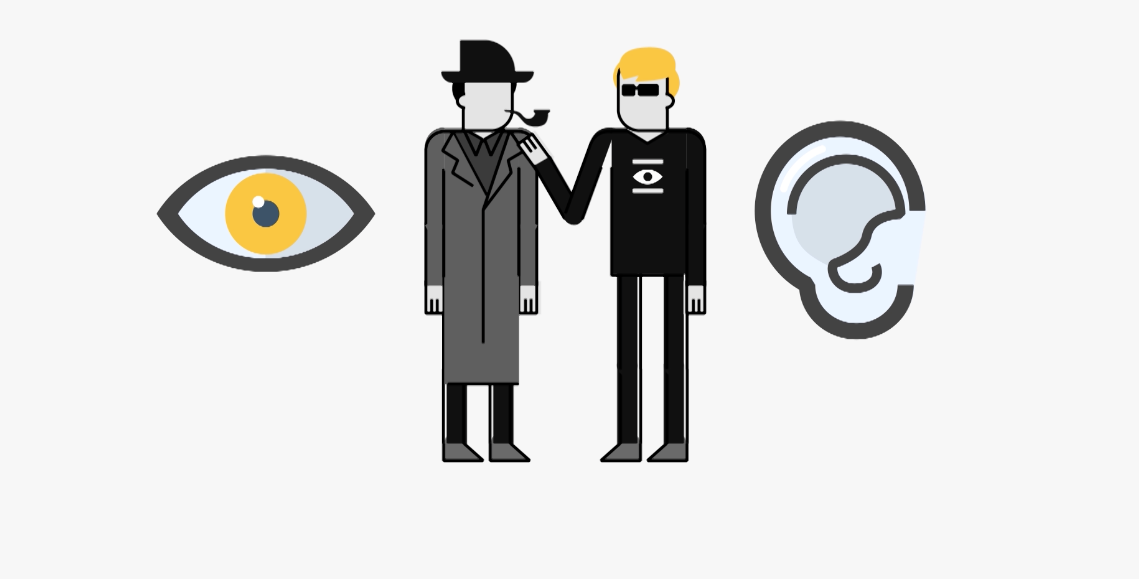
Swiss voters give strong backing to ‘social welfare detectives’

Should detectives be allowed spy on insurance claimants to weed out fraud? Yes, say Swiss voters, who on Sunday largely opted for probity over privacy in sanctioning a new law to this effect.
The results were resounding: voters, as predicted, clearly backed the government-proposed law to give public and private insurance companies a means of tracking down beneficiaries they suspect of cheating the system.
Some 64.7% of voters nationwide said “yes” to the detectives, with a turnout rate of 47%, slightly above average. Almost all cantons gave their approval: Geneva, where 58.6% of voters came out against the plan, and Jura were the only exceptions.
The legislation, drafted following a 2016 rebuke of Switzerland by the European Court of Human Rights, will give private detectives hired by social insurance bodies the right to follow, and record, welfare recipients anywhere in the public space.
Home Affairs Minister Alain Berset welcomed the result, saying it showed the desire of voters for a strong social security system, but also one that was strict in examining who had access to payments. The law may enter into force by 2020, he told journalists.
Dimitri Rougy, a central figure of the opposition referendum group, said on Sunday that it was the multi-million dollar campaign waged by insurance companies – as well as alleged disinformation tactics by the government – that tipped the scales.
Other left-wing politicians said that further clarifications about what they saw as a blurry piece of legislation remain necessary: social democrat Rebecca Ruiz said questions remained about where an individual can be filmed, what standards will be imposed on detectives, and whether or not drones can be used for recording.
+ What was at stake in the social detectives vote, in detail
Failure to communicate
The issue was forced to referendum in the first place thanks to a whirlwind citizen campaign that emerged this spring protesting the law. After an innovative, mainly online drive, the activists collected and handed in the requisite 50,000 signatures in early July.
However, their influence soon wobbled and opinion polls in the run-up to the vote showed citizens largely tilting in favour of the new law: a November 14 survey by the GfS Bern research institute gave 59% for, 38% against, and just 3% undecided.
As well as being somewhat overshadowed by the two other votes on the table Sunday (‘Swiss law first’ and ‘cow horns’), the underwhelming support for the opposition may have been due to a failure to transmit its message, said Lukas Golder of the GfS institute.
“Concerns about the private sphere of citizens were not accepted as a decisive factor to reject the law,” he said in the lead-up to the vote.
+ The origins of the online activist campaign against the law

More
Social welfare detectives: how far can they go?
Government assurances
The backers of the law, including the government, waged a campaign mostly relying on downplaying fears of intrusive prying and highlighting the amount of cash that could be saved through a crackdown on fraud.
“It [the law] states clearly that surveillance can only be done in a public space, or in an area visible from a space publicly accessible. Any surveillance in a closed or private space is forbidden”, said Home Affairs Minister Alain Berset in October.
The Federal Office of Social Insurance said that the bill will not allow detectives to use technical devices that augment human vision or hearing to take photos or record audio or video – that means no drones, night-vision goggles, infrared cameras, telescopes or bugs.
Berset also highlighted that none of this is even new: surveillance has been going on for years in Switzerland. The issue has only reared its head now due to the ECHR’s decision that a legal basis was missing, which led detective work to be largely suspended since 2016.
On Sunday, Berset also stressed that detectives – who will be strictly vetted and placed on a publicly available database – will not be turned to indiscriminately. They are a “last resort”, he said, only to be used when no other methods of investigation are able to determine a case.
33.8% yes 66.2% no
45.3% yes 54.7% no
64.7% yes 35.3% no
Turnout: 47.7%

In compliance with the JTI standards
More: SWI swissinfo.ch certified by the Journalism Trust Initiative















![The four-metre-long painting "Sonntag der Bergbauern" [Sunday of the Mountain Farmers, 1923-24/26] had to be removed by a crane from the German Chancellery in Berlin for the exhibition in Bern.](https://www.swissinfo.ch/content/wp-content/uploads/sites/13/2025/12/01_Pressebild_KirchnerxKirchner.jpg?ver=f05a5a9c)















You can find an overview of ongoing debates with our journalists here . Please join us!
If you want to start a conversation about a topic raised in this article or want to report factual errors, email us at english@swissinfo.ch.